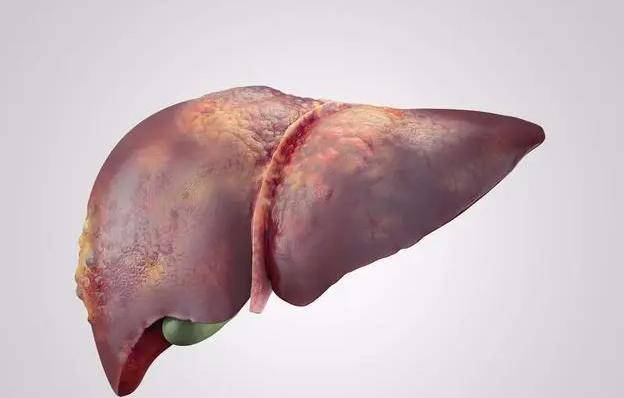The liver in traditional Chinese medicine is believed to be responsible for excretion. As the body’s largest detoxification organ, the liver not only aids in the digestion of the spleen and stomach but also has a significant connection with the body’s Qi and blood.
However, once the liver is damaged, it can lead to a serious decline in our physical condition. Therefore, protecting liver health has become an essential aspect that we must pay attention to.
Eggs are originally highly nutritious and contain high-quality proteins, often referred to as the “ideal nutrient store.” Why do many liver disease patients shy away from them? Is eating boiled eggs beneficial or harmful to the liver?
Five bad habits are the main causes of liver damage:
1. Smoking for a long time
Long-term smoking not only affects lung health but also increases the circulation burden on the liver over time.
Tobacco itself contains an excessive amount of free radicals. Once they enter the body, the body’s antioxidant energy gradually decreases, causing an imbalance in the liver’s antioxidant system, which can easily lead to tissue damage, necrosis, or even cancer.
2. Alcohol consumption
To avoid a decrease in liver function, it is crucial to stay away from alcohol. Many people frequently drink alcohol without realizing that excessive alcohol consumption can cause liver cell degeneration and necrosis, leading to liver diseases in some individuals.
Alcoholic liver disease, fatty liver, and cirrhosis can all be caused by prolonged alcohol consumption. To improve liver function, one must control their intake of alcohol-rich foods, avoid drinking alcohol regularly, and reduce the stimulation on the liver to enhance its function.
3. Staying up late
Modern lifestyles are often rich in night activities, coupled with busy work schedules requiring late-night shifts, leading to staying up late becoming a common practice.
Between 11 pm and 1 am, the liver is actively working. Failing to enter the sleep state during this period reduces the liver’s blood storage, affecting its normal detoxification function.
Moreover, staying up late can cause hormonal imbalances, affecting liver cell nutrition and reducing resistance.
4. Consuming greasy foods frequently
If one’s diet is irregular, and they often consume excessively greasy foods, it leads to the accumulation of a large amount of calories and fats in the body, increasing the metabolic burden on the liver.
This excessive fatigue and overuse can harm liver health, leading to the development of fatty liver. Therefore, one must maintain a good dietary regimen for a healthier lifestyle.
5. Prolonged sitting
Joints, tendons, and ligaments all belong to the liver system, providing the structural foundation for liver activity. Prolonged sedentary behavior can stiffen these parts, causing them to lose flexibility and agility, leading to blockages in liver cell blood flow.
Furthermore, people who sit for extended periods are more likely to experience irritability and mood swings, which can also damage the liver.
Is eating boiled eggs beneficial or harmful to the liver?
Some may believe that eggs are high in cholesterol, and regular consumption may burden the liver, affecting liver health. So, is eating boiled eggs beneficial or harmful to the liver? Let’s find out together.
While the liver is a vital metabolic organ in the human body that can protein, it can also suffer from protein deficiency.
At such times, consuming foods rich in high-quality proteins, like eggs, can adequately supplement the liver with the necessary proteins.
Compared to individuals with normal physique, patients with liver diseases already have altered liver cells around the liver. Vitamins and soy lecithin in eggs can help maintain the normal liver functions, preventing discomfort caused by liver damage.
Therefore, both individuals with normal physique and those with liver diseases can consume eggs. Moderation is key, as excessive consumption may be challenging to digest.
Doctor’s advice: Remember these four points when eating eggs:
1. Do not consume too many eggs at once
Despite being affordable and highly nutritious, eggs should not be overconsumed as they are hard to digest. Eating too many eggs can increase the digestive pressure, leading to bloating, abdominal pain, and other symptoms.
Adults should consume only 1-2 eggs per day. Excessive intake can have adverse effects.
2. Do not drink tea immediately after eating eggs
Although tea is a popular functional beverage with several health benefits, it is not advisable to drink tea immediately after eating eggs.
Tea contains a high amount of tannic acid, which can combine with the protein from eggs, creating more stomach sediment, adding burden and pressure on the intestines and stomach, resulting in hardened stools and possibly causing constipation.
3. Do not eat eggs on an empty stomach
Eggs are rich in protein, and consuming them on an empty stomach can lead to the easy breakdown of proteins into sugars, affecting blood sugar levels and adding burden to gastrointestinal functions.
In the morning, it is better to consume some starchy foods before eggs to facilitate better nutrient absorption and digestion.
4. Eggs must be thoroughly cooked before eating
According to clinical research, consuming raw eggs can lower the body’s immune response, mainly due to the presence of numerous pathogens and bacteria in raw eggs.
Only by cooking eggs at high temperatures can the bacteria and pathogens be killed, reducing the clinical risks of illness from prolonged consumption of semi-cooked eggs, which may lead to gastrointestinal disorders and liver hydatid cysts.


